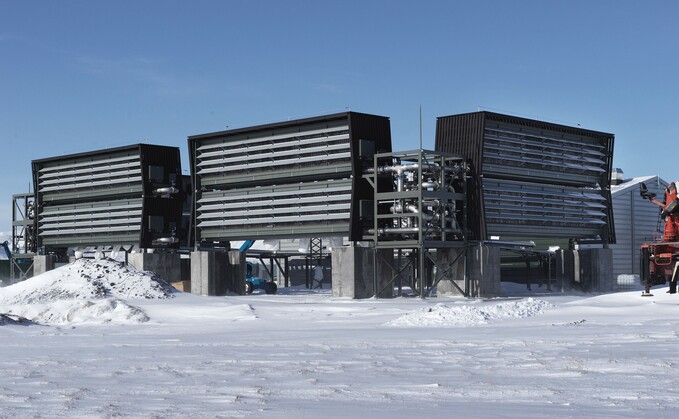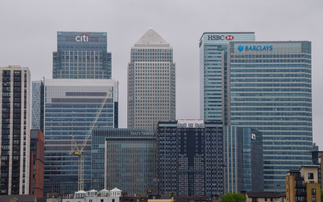
Climeworks' Orca plant, Iceland | Credit: Climeworks
The financial services giant is the latest in a strong of global companies to sign long-term agreements with Swiss direct air capture pioneer
UBS has become the first financial services firm to partner with Swiss direct air capture (DAC) specialist Climeworks, with the investment bank today announcing it has signed a 10-year agreement to help offset its "unavoidable" emissions and support the expansion of the nascent carbon removals sector.
In addition, UBS said it was partnering with Swiss zero-emissions concrete provider Neustark - which removes CO2 from the atmosphere by storing it in concrete - as a further avenue for it to address its "unavoidable carbon emissions".
"Innovative technologies play an increasingly important role in the transition to a low-carbon economy," said Suni Hartford, UBS group executive board lead for sustainability. "By collaborating with neustark and Climeworks, UBS wants both to further reduce our own carbon footprint and, crucially, to support the development of scalable solutions that the world needs to achieve net-zero emissions by 2050."
The Intergovernmental Panel on Climate Change (IPCC) has calculated that between three billion and 12 billion tonnes of CO2 needs to be removed from the air annually every year by 2050 in order to limit global warming to 1.5C, with DAC technology expected to play a key role, potentially removing up to 310 billion tons of CO2 by 2100.
UBS is the latest in a string of major companies to have signed offset agreements with Climeworks. In addition to agreements with financial services companies such as Stripe, Klarna, Square Inc, LGT and Verdane, Climeworks' other global clients include Microsoft, global jewellery house Swarovski, which previously agreed a five-year CO2 removal deal, insurer Swiss Re, and online grocer Ocado.
The new long-term agreement has been described by Climeworks as "key" to providing it with the capital it needs to accelerate the deployment of its next wave of carbon removal plants. The company operates a small scale DAC system in Iceland known as the Orca plant which removes CO2 from the air and then stores it under the Icelandic bedrock, by reacting the captured gas with rock to enable permanent sequestration.
Climeworks also recently announced that it had broken ground on its second plant - dubbed Mammoth - as it looks to capitalise on the long-term demand for CO2 removal solutions.
"In the past months, the number of multi-year carbon removal agreements has increased rapidly," said Christoph Gebald, co-founder and co-CEO of Climeworks. "Such long-term commitments are central to our growth planning and enable us to scale up."
DAC technologies remain controversial in some quarters, with a number of green groups questioning whether the sector can deliver emissions savings at sufficient pace, scale, and affordability to help ensure net zero emissions goals are met, and others concerned the technology could distract from the need to cut emissions at source.
But advocates for negative emissions projects maintain the fledgling sector could help tackle emissions that are difficult or expensive to avoid and could yet play a critical role in delivering on the goals of the Paris Agreement.







